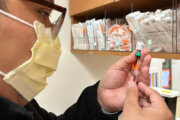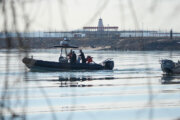WASHINGTON – The bombs that exploded at the Boston Marathon have once again put a spotlight on how the D.C. area would respond to another terror attack.
For the region’s 42 hospitals, much has changed since the Sept. 11, 2001 attacks on the Pentagon.
“The war in Iraq and Afghanistan has just moved trauma care forward immensely,” says Craig DeAtley, emergency manager at MedStar Washington Hospital Center on Irving Street in Northwest D.C.. The hospital would take the lead in treating local victims of an event causing a large number of injuries, like a bombing or plane crash.
Technological advancements and training give trauma patients a better chance of survival than they did a decade ago, he says.
Much of the focus for the local hospital would be on triage, making sure the right patient gets to the right hospital. For example, a child would be sent to Children’s Hospital and a burn victim to a local burn unit.
The hospitals have also stepped up security in case they are the target. At Washington Hospital Center, fencing surrounds the facility and can be closed to limit cars and people from getting in during an emergency.
“If we lose one of these facilities because of a terrorist attack or some other problem, then we have lost a critical part of the health care system’s ability to respond,” DeAtley says.
On April 18 and 19, hospitals across the region will practice a mass-casualty event, a drill planned long before the Boston bombings. The drill will test the response to a hypothetical rain storm, flood and a tornado that caused a high number of casualties.
Follow @hsilverbergwtop and @WTOP on Twitter.







